The quality policy of the University was approved at the 5th/01-11-2023 meeting of the Quality Assurance Committee (the quality objectives were approved at the 6th/16-11-2023 meeting of the Quality Assurance Committee) and ratified by decision No. 457/06-12-2023 of the Senate.
Vision of Harokopio University
A University that offers learning and knowledge pathways, scientific and professional training, research as well as specialization, advocating for sustainable development and the improvement of human quality of life, fostering partnerships in the international arena with significant contributions.
Quality Policy Statement
The Harokopio University continues to prioritize quality assurance in its strategic planning, investing significantly and systematically in the continuous development of a quality culture across all its functions and areas of education, research, and innovation.
Quality Policy
Harokopio University has established and implemented a quality policy, as reflected in the approved by the competent bodies ‘Strategic Plan 2021-2024’, where the achievement of goals is assessed within the framework of quality indicators and performance metrics as defined by the competent Ministry of Education, Religion, and Sports, and the National Authority for Higher Education.
The ‘Strategic Plan 2021-2024’ is summarized in the following table:
| PRIORITY | STRATEGIC VALUE | AΙΜ |
| Education | International University – Academic Development | Academic Development Quality Assurance of Studies |
| Research | Research University | Maintenance of high level research outcomes Enhancement of research outcomes utilization |
| Connection with society | Extroverted University | Strengthening the connection with the job market
Strengthening the connection with society |
| Internationalization | International University |
Internationalization
Attraction of international students
|
| University Environment | Suistanable University |
Sustainable operation
Integration and empowerment of all members of the academic community
|
| Quality Assurance | Preservation of University Identity |
Expansion of building infrastructure
Maintenance of infrastructure integrity
Improvement of service quality
QAU: Assurance of Study Quality
|
In this context, the quality policy at Harokopio University aims to:
- to certify all Study Programs and continuously improve them, focusing on students’ needs and developments in the scientific fields they cover
- by enhancing research activity through collaborations with other educational institutions, organizations, and entities in the public and private sectors in Greece and abroad,
- in pursuit of excellence, innovation, and entrepreneurship,
- in the sustainable operation of the University and the enhancement of the working environment and infrastructure to support academic and administrative work
- in ensuring transparency, evaluation, and providing equal opportunities without discrimination towards all involved members,
- in its contribution to society and human quality of life, remaining faithful to the vision of its founder and national benefactor, Panagiotis Harokopos.
The quality accreditations of the University are reflected through the operation of the processes and procedures of the Internal Quality Assurance System (IQAS), which is drafted, implemented, and reviewed at regular intervals to align and comply with quality criteria and the regulatory framework defined by the European Higher Education Area and the principles and directives of the Hellenic Authority for Higher Education (HAHE). The Internal Quality Assurance System (IQAS) of Harokopio University has obtained full compliance certification from the Hellenic Authority for Higher Education.
The quality policy of the Institution is evaluated through the processes of the Internal Quality Assurance System. Within the assessment framework of the Internal Quality Assurance System, the academic community participates critically and substantively, while the administration is committed to continuous quality improvement, and the assessment outcomes are disclosed to all relevant stakeholders through appropriate means.

